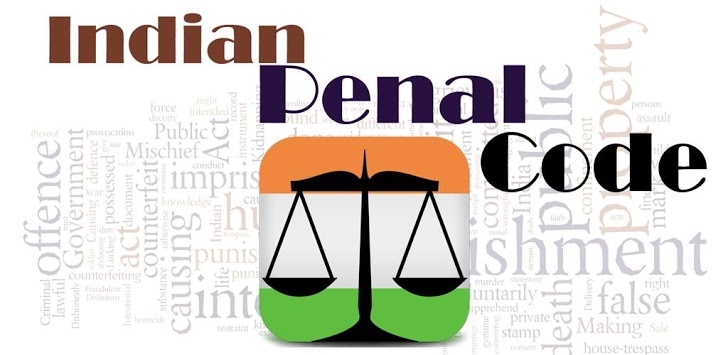This article is written by Shristi Roongta, a student at Amity Law School, Kolkata. This article discusses mainly the punishment provided under Section 324 of the Indian Penal Code, along with other relevant details such as the nature of the offence, exceptions to Section 324, and relevant case laws.
This article has been published by Sneha Mahawar.
Table of Contents
Introduction
In general terms, causing someone a bodily injury constitutes hurt. Under the Indian Penal Code, 1860 (IPC), hurt is defined in Section 319 which states that whoever causes bodily pain, disease, or infirmity to any person. Different aspects of hurt are covered from Section 319 to Section 338. One such aspect is covered under Section 324 of the IPC. It deals with voluntarily causing hurt by dangerous weapons or means. For every crime under the relevant statutes, the punishments are provided specifically in the IPC for criminal offences, and Section 324 of the IPC is no exception. In this article, the punishment under Section 324 shall be discussed and other relevant details shall be provided through various judgments passed by various courts across India.
Offence under Section 324 IPC
Section 324 of the IPC states that when a person is voluntarily hurt by the use of a dangerous weapon or means, the act comes under the purview of voluntarily causing hurt by dangerous weapons or means. The Section further states that voluntary hurt is caused by:
- Any instrument for shooting, stabbing or cutting; or
- Any instrument used as a weapon of offence that is likely to cause death; or
- Fire or any heated substance; or
- Any type of poison; or
- Any corrosive substance; or
- Any explosive substance; or
- Any substance that is deleterious to the human body for inhaling, swallowing or receiving into blood; or
- Any animal.
Essentials of an offence under Section 324 IPC
- Voluntarily causing hurt,
- by use of dangerous weapons or means, and
- the act must cause bodily pain, disease or infirmity.
Exceptions to Section 324
Section 334 of the IPC is an exception to Section 324 of the IPC. In Section 324, we see that if someone is hurt voluntarily by another person with a dangerous weapon or means, the person who is hurt shall be saved by the provision of Section 334, i.e., voluntarily causing hurt on provocation. According to the Section, if someone causes hurt voluntarily on grave and sudden provocation and the person who provoked him has the intention and knowledge of the act, then the person committing such an offence shall be punished with imprisonment for a term that may be up to 1 month or a fine that may be up to Rs. 500 or with both. Here an important element is that the person causing hurt has no knowledge or intention of his act.
Essentials of Section 324
- Causes hurt voluntarily
- Grave and sudden provocation by someone else
- No intention and knowledge of the act
The offence under this Section is compoundable.
Punishment under Section 324 IPC
For an offence committed under Section 324 of the IPC, the accused is punished with imprisonment, which may extend to 3 years, a fine, or both.
Nature of offence under Section 324 IPC
The offence committed under this Section is of the following nature:
- Cognizable: Cognizable offences are those offences in which a police officer can make an arrest without a warrant or prior permission of the court. Therefore, a police officer for any offence committed under this Section can arrest the offender without any warrant or permission from the court. Examples- murder, rape or dowry deaths. In these cases, a police officer can arrest the person who is committing such an offence without a warrant or prior permission from the court.
- Non-bailable: Non-bailable offences are those in which a bail is not granted to the accused. This happens in cases of serious crimes or offences. Examples – murder or rape. Therefore, any person causing voluntarily hurt by the use of any dangerous weapons or means shall be arrested under a non-bailable offence.
- Non-compoundable: In non-compoundable offences, the compromise cannot be done by the victim or the charges cannot be dropped against the accused because the crime is of serious or grave nature. Since the offences under this Section are of serious nature, hence, it is a non-compoundable offence. Example- in cases of voluntarily causing hurt by dangerous weapons or means or in cases of wrongful confinement of a person for three days or more.
- Can be tried by any Magistrate: The cases under this Section can be tried by a Magistrate. A Magistrate can take offence under Section 190 of Code of Criminal Procedure, 1973 either upon receiving a complaint or upon the report of the police or upon receiving the information from any other person apart from the police that such offence has been committed.
Compoundable or non-compoundable offence
The offence committed under Section 324 of the Indian Penal Code is a non-compoundable offence. First, let’s understand what a compoundable offence is. Under IPC, a compoundable offence is an offence in which a person, i.e., the victim who has filed the case, agrees to make a compromise by allowing the charges against the accused to be dropped. However, this compromise must be bona fide and must not be agreed upon for consideration. Section 320 of the Code of Criminal Procedure, 1973 describes the compounding of offences.
Now, a non-compoundable offence is an offence in which a compromise cannot be made. The compromises made in compoundable offences are less serious and grave in nature, however, the non-compoundable offences are serious and grave. Hence, in non-compoundable offences, the victim cannot drop the charges against the accused. In non-compoundable offences, the state, i.e., the police, makes a complaint.
In the following case laws, the courts have described when an offence can be considered compounded and vice versa.
Mathura Singh and Others v. State of U.P. (2009)
This case basically gives the historical details of the Section. How this Section became non-compoundable from compoundable. This case was decided on 27th April, 2009. However, until that date, the Code of Criminal Procedure (Amendment) Act of 2005 was not enforced by notification. Hence, the Supreme Court held that the offence committed under Section 324 of IPC would be compoundable in this case, with the Court’s permission. When the notification was published on 31st December, 2009, the offence under Section 324 of IPC became non-compoundable.
Therefore, before the stated amendment came into existence, the offence under Section 324 of IPC was compoundable with the Court’s permission, and it was not a non-compoundable offence. However, when the amendment came into existence, it changed the outlook of the Section. Since the offence under this Section is of a serious nature, it is made non-compoundable.
Hirabhai Jhaverbhai v. State of Gujarat (2010)
In this case, the Supreme Court allowed the appeal made against the judgment passed by the Single Judge bench of the Gujarat High Court. The Single judge bench convicted the appellant under Section 324 of the Indian Penal Code and imposed a fine of Rs. 250/- with six months of imprisonment. The appeal was also made against the rejected application for seeking permission from the Court for compounding the offence punishable under Section 324 of IPC by the Single Judge bench of the Gujarat High Court.
The Supreme Court observed that, as of 23rd June, 2006, when the amendment, i.e., The Code of Criminal Procedure (Amendment) Act, 2005, made to the Code of Criminal Procedure, 1973, was enforced, the offence under Section 324 of IPC was made non-compoundable. However, in this case, the offence was committed before the amendment was enforced, i.e., on 23rd July, 1986. Therefore, the Court held that the offence was compoundable under this Section since the provisions of the amendment were not applicable to the facts of the case.
Soundararajan v. State through the inspector of Police (2015)
In this case, an issue was raised that the offence which is proved before the Court was non-compoundable on the date of judgment, whether the compounding of the offence may be permitted with respect to Section 324 of IPC after the Code of Criminal Procedure (Amendment) Act, 2005 came into force?
The Madras High Court held that the offence was committed on May 25, 1999, hence before the amendment came into existence. Therefore, under Section 324 of IPC, the offence remains compoundable, and the petition for compromise must be accepted.
Difference between Section 324 and Section 326 of the IPC
| Section 324 | Section 326 |
| Voluntarily causing hurt by dangerous weapons or means. | Voluntarily causing grievous hurt by dangerous weapons or means. |
| The hurt is simple by dangerous weapons. | The hurt is grievous. |
| The exception is Section 334. | The exception is Section 335. |
| The punishment is imprisonment, which may extend to 3 years. | The imprisonment can be life imprisonment or can extend up to 10 years. |
| An accused can either be fined or not, or can be fined along with imprisonment. | An accused shall be liable to fine. |
Judicial pronouncements
Anwarul Haq v. State of Uttar Pradesh (2005)
In this case, the Supreme Court observed that whoever causes voluntarily hurt as defined under Section 324 of IPC shall be convicted. The Court also observed that the expression “an instrument, which is used as a weapon of offence, is likely to cause death must be interpreted with the nature of the instrument referred and how the instrument is used. The prosecution must establish that the accused person has voluntarily caused hurt and that hurt was caused because of an instrument as stated under Section 324 of IPC.”
Pravat Chandra Mohanty v. the State of Odisha (2021)
In this case, the Supreme Court observed that the appellants had used bamboo lathis and wooden battens as weapons of offence in committing the offence. Section 324 of IPC uses the expression, “weapons of offence” and the submissions made by the appellants were not accepted by the Court that the use of the said weapons were not likely to cause death. Therefore, the Court held that submission cannot be accepted that the lathis and batten used were not likely to cause death, as it depends on the manner of usage of the weapon or weapons.
Ramesh alias Dapinder Singh v. State of Himachal Pradesh (2021)
In this case, the appellants were the accused as registered by the police for offences punishable under Sections 302, 323, and 324 of the IPC. The trial court convicted all the accused, and under the first count, they were punished with life imprisonment, under the second and third count, they were punished with rigorous imprisonment of one year and three years, along with a fine.
In the case, a person was murdered with dangerous weapons such as a sickle. The judgment of the trial court was upheld by the High Court of Himachal Pradesh and subsequently by the Supreme Court.
Rekha Faldessai v. State of Goa (2023)
Recently, the Bombay High Court held that the use of physical force in order to correct a child in school, without a mala fide intention, is not an offence under Section 324 of IPC. The Children’s Court for the State of Goa had convicted the teacher, i.e., the accused for hitting two children, aged about 6 and 9 years under Section 324 of IPC and Section 2(m) of the Goa Children’s Act, 2003. The accused was asked to pay Rs. 10,000 under Section 324 of IPC.
Conclusion
Hurting someone intentionally with the use of any dangerous weapons is a serious issue because such weapons or means can take a person’s life. Under the provisions of the Indian Penal Code, the person causing voluntary hurt with a dangerous weapon is punished with imprisonment, a fine, or both. Therefore, it is important to make stringent laws for the people to be protected from such acts by other people. Hurting someone to the extent of death is something that cannot be looked over, and the courts should give punishments to such persons. Because such acts cause an irrecoverable loss to the victim and his family.
Frequently Asked Questions (FAQs)
Whether offence under Section 324 is bailable or non-bailable?
It is a non-bailable offence, and imprisonment can be up to 3 years.
Whether offence under Section 324 is cognizable or non-cognizable?
It is a cognizable offence, which means the police can make an arrest without a warrant.
Whether the offence committed under Section 324 of IPC is compoundable or non-compoundable?
It is non-compoundable as per the Code of Criminal Procedure (Amendment) Act, 2005.
References
- https://indianlawinfo.in/ipc-section-324-indian-penal-code-section-324-explainer/
- https://www.lawyersclubindia.com/articles/section-324-ipc-a-component-that-criminalises-deliberate-infliction-of-injuries-14261.asp
- http://student.manupatra.com/Academic/Abk/Indian-Penal-Code/chapter10.htm
- https://lawrato.com/indian-kanoon/criminal-law/what-is-a-compoundable-and-non-compoundable-offence-in-india-611#h2Heading2
Students of Lawsikho courses regularly produce writing assignments and work on practical exercises as a part of their coursework and develop themselves in real-life practical skills.
LawSikho has created a telegram group for exchanging legal knowledge, referrals, and various opportunities. You can click on this link and join:
Follow us on Instagram and subscribe to our YouTube channel for more amazing legal content.
 Serato DJ Crack 2025Serato DJ PRO Crack
Serato DJ Crack 2025Serato DJ PRO Crack













 Allow notifications
Allow notifications


